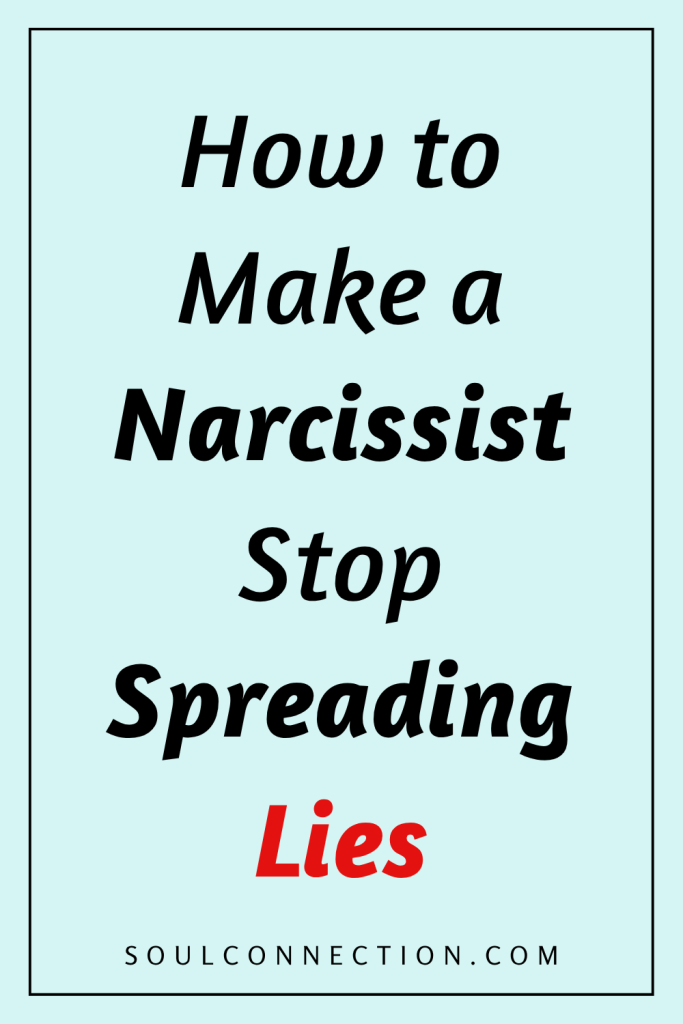If you’ve ever tangled with a narcissist, you know there are a few certainties in life: death, taxes, and fabricated stories that would make a fiction writer blush.
Nothing quite matches the thrill of discovering a new tale about yourself, courtesy of someone who believes the world is their personal PR campaign.
But what do you do when the lies start stacking up, threatening everything from your reputation to your blood pressure? Sit back, breathe deep, and prepare for a crash course in taming the rumor mill—narcissist edition.
Recognizing the Pattern of Narcissistic Lies
Spotting the lies can feel a bit like playing whack-a-mole at a rigged carnival booth. One story goes down, three more pop up, each more creative than the last.
Narcissists can rarely resist the urge to bend reality if it means boosting their image or knocking you down a peg.
This isn’t about someone making an occasional mistake or stretching the truth on Instagram. We’re talking about a calculated effort to rework the facts until they barely resemble reality.
The goal? To keep control, sow confusion, and keep the spotlight firmly fixed on themselves.
Don’t Expect Immediate Honesty
If you’re hoping for a heartfelt apology and a group hug, you may be waiting until pigs fly business class. Narcissists are not exactly famous for their willingness to come clean, especially when deception has been their bread and butter.
When confronted, many will double down, spin new yarns, or even accuse you of being the real liar. It’s not fair, it’s not fun, but it’s part of the playbook. Bracing yourself for this saves a lot of emotional energy.
Stop Feeding the Drama
There’s something almost irresistible about wanting to shout your truth from the rooftops, especially after hearing the latest piece of creative nonfiction about your life. Trouble is, narcissists thrive on drama like plants thrive on sunshine.
Chasing down every rumor, correcting every lie, and providing point-by-point rebuttals can turn into a full-time job with zero pay and all the stress. Instead, pick your battles.
Silence can be a powerful weapon. Starving the narcissist of attention is sometimes the best way to halt the circus.
Guard Your Reactions
Narcissists absolutely adore strong emotional responses—they’re the confetti at their parade. Outrage, tears, frantic explanations: these are catnip for a person who loves being in control.
Resist the urge to react with fireworks. Calm, measured responses, or none at all, can be deeply unsatisfying for someone looking to stir the pot.
Think of it as the emotional equivalent of unplugging the karaoke machine at midnight.
Document Everything
While you might prefer to leave detective work to true crime podcasts, keeping a record can be invaluable. Screenshot texts. Save emails. Jot down dates and details of shady conversations.
This doesn’t just help if things escalate to HR, court, or family showdowns—it also helps you keep your own sanity. Gaslighting is a favorite tool of narcissists; proof in your back pocket goes a long way when reality starts to wobble.
Set Boundaries and Actually Enforce Them
Telling a narcissist “That’s not true, please stop” is unlikely to result in a sudden moral awakening. But clear, consistent boundaries can act like invisible electric fences—they may not love it, but they’ll notice.
State, clearly and calmly, that you won’t tolerate further lies or personal attacks. If the narcissist continues, limit your contact and stick to neutral topics.
This isn’t about changing them (reform school for narcissists is, regrettably, not a thing), but about protecting yourself.
Rally Your Allies
Nobody likes to think of their social group as a Game of Thrones episode, but when a narcissist starts spinning stories, having a few trusted allies matters.
Quietly let close friends, family, or colleagues know your side. No need for dramatic campaigns—just enough support so you’re not left isolated on an island of lies.
These people can step in if the narcissist tries to poison the well and, at the very least, remind you you’re not losing your mind. Bonus points if they have a good sense of humor about the whole mess.
Take the Conversation Offline When Possible
Ever tried resolving a conflict in a group chat? Spoiler: The narcissist wins every time. Digital communication is their playground—easy to manipulate, hard to keep civil, and permanently recordable.
When addressing a lie, steer the conversation offline.
In-person or phone conversations make it much harder for them to twist your words or play to the crowd. Plus, it’s a lot easier to spot when someone is performing for an audience without the screen between you.
Protect Your Reputation Proactively
Waiting for the narcissist to stop lying is like waiting for rain in the desert. Instead, put your energy into quietly reinforcing your own credibility. Excel at work. Be trustworthy with friends. Keep your side of the street clean.
People aren’t as gullible as narcissists hope. Over time, patterns become obvious, and your consistent behavior will outshine even the juiciest rumors.
Don’t Try to “Beat Them at Their Own Game”
Tempting? Absolutely. Effective? Not a chance. Narcissists are Olympic-level manipulators. Engaging in mudslinging only gets everyone dirty—and if you’re wrestling with pigs, you can bet the pig is enjoying it.
Refuse to stoop to their level. Take the high road, even if it feels lonely. Your dignity will thank you, and you’ll be far less likely to regret your actions when the dust settles.
Limit Information Narcissists Can Weaponize
A narcissist can’t twist what they don’t know. Keep sensitive details about your life on a need-to-know basis. Oversharing is a gift-wrapped present for someone who sees your vulnerabilities as ammunition.
Polite, vague answers to probing questions are your best friend. Channel your inner international spy—charming, but never fully disclosing the mission.
Seek Professional Support if Needed
Persistent, damaging lies can do a real number on your mental health, not to mention your social and professional life. Therapists, counselors, or even legal professionals can help you navigate the chaos.
If things get especially vicious—stalking, harassment, or reputational sabotage—don’t hesitate to seek legal advice. Sometimes, drawing a line means involving someone with a nameplate on their desk.
When to Walk Away
Sometimes, the healthiest thing you can do is step away entirely. If the narcissist in question is an ex, distant relative, or a colleague you don’t have to deal with every day, consider going low- or no-contact.
It’s not giving up. It’s refusing to play a game where the rules are always changing and the referee is working for the other team. There’s nothing weak about choosing peace over endless conflict.
Why the Narcissist Keeps Lying (and Why It’s Not Your Fault)
The impulse to blame yourself comes on strong when someone keeps misrepresenting you. Maybe you’re too trusting. Maybe you said too much. Maybe that one time you wore socks with sandals set off a chain reaction.
Here’s the truth: It’s not about you. Narcissists lie to protect their fragile sense of self or to bend reality to match their version of events. You didn’t cause it, and you can’t fix it by being “better.” Let that guilt go.
Rebuilding Trust After the Storm
Once the stories stop swirling, a lot of people find themselves staring at the wreckage: friendships frayed, reputations bruised, energy depleted. Rebuilding trust is a slow process—but it’s possible.
Start by reconnecting with people who matter. Be honest about what happened, but don’t let the narcissist’s version dominate your narrative. Trust returns, slowly but surely, when people see your authenticity.
The Slow Fade of Falsehoods
While a narcissist’s lies can feel all-encompassing, their power lessens over time.
Reputations built on smoke and mirrors eventually collapse under their own weight. Patience, self-care, and a dash of skepticism go a long way.
One day, you’ll look back and realize the stories have stopped, or maybe nobody believes them anymore.
The narcissist will have moved on to a new audience, and you’ll be left—not unscathed, but wiser and a lot harder to knock off balance.
And maybe, just maybe, with a few stories of your own about how you survived the “Great Lie Tsunami” of the year. No embellishments required.


